Choosing the right Incoterms often comes down to how much risk and responsibility you would like you and your seller to take on. Subsequently, you may have to compare different Incoterms to find one that captures all your preferences.
In this guide, we compare FCA vs FOB Incoterms. We highlight their similarities and also examine how they each allocate risks, costs, and responsibilities between buyers and sellers.
Let’s get to learning.
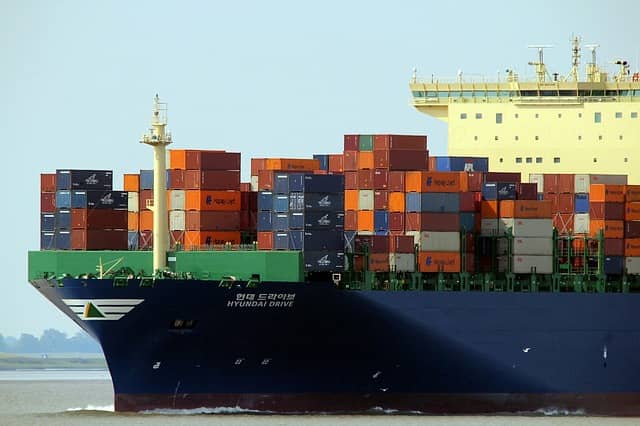
FCA vs FOB Shipping Terms Defined
FCA is an abbreviation for ‘Free Carriage‘. It is a shipping term where the seller is responsible for appropriately packing and delivering goods to a buyer at an agreed destination.
FOB stands for ‘Free on Board‘. The rules of these Incoterms mandate the seller to pack and deliver goods to the buyer’s export carrier and ensure that they are loaded onto the ship.
With the basic introductions out of the way, let us dive a little deeper into understanding both of these Incoterms.
Free Carrier (FCA)
FCA Incoterms require the seller and the buyer to agree on a location where the goods are to be delivered. It could be an export carrier’s premises, port, or airport within the seller’s country.
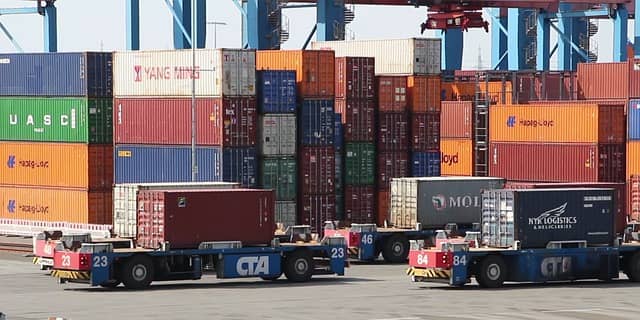
Once that is settled, the responsibilities, risks, and costs will be shared between you as follows:
The Seller’s Responsibilities
The seller should prepare the goods you(the buyer) have ordered and pack them as you have requested. They should then proceed to:
- Load the goods onto a local carrier
- Transport the goods to your export carrier or other location
- Clear the goods for export
- Pay any export costs that arise
Responsibility for the goods shifts from the seller to the buyer once these tasks have been completed and the cargo Is ready to be loaded for export.
The seller should, nevertheless, inform the buyer that they have cleared and handed over the goods to the carrier. They should also collect and share requisite shipping documents with the buyer.
The Buyer’s Responsibilities
Under FCA Incoterms, the buyer is required to:
- Select an export carrier that will transport the goods from the export country to the buyer’s country.
- Arrange insurance coverage for the goods in transit.
Note: Insurance is not mandatory under FCA but it is highly recommended to protect the buyer against risks such as the loss or damage of goods.
- Arrange for the loading of the goods onto the ship, plane, or train.
- Pay the loading costs.
- Track the shipment.
- Handle the customs and import clearances once the goods arrive in their (the buyer’s) country.
- Organize for the unloading of the goods and pay unloading charges.
- Organize and pay for the loading and transportation of the goods to their final destination.
Incoterms 2020 stipulate that, under FCA rules, a buyer should ask their chosen carrier to provide the seller with shipping documents. This seeks to solve the age-old problem where carriers were often only willing to provide such documents directly to the buyer.
Advantages of FCA Shipping Terms

Advantages to the buyer:
- The buyer retains complete control over the choice of carrier and can negotiate rates to their advantage.
- The buyer does not have to worry about navigating foreign export policies because the seller is responsible for export clearances.
- FCA can be used for any mode of transport.
Advantages to the seller:
- All responsibilities charged to the seller occur in their country where they are more familiar with how custom clearances work.
- The seller’s responsibilities under FCA are quite minimal compared to other more involving Incoterms like CIP or CIF.
- The seller can always recoup what they spend on local carriage and export fees by including it in the prices they quote to buyers.
Disadvantages to the buyer:
- While it works to the buyer’s advantage, selecting an export carrier and an insurance provider can be challenging especially for beginners.
- The buyer having full control over the export logistics also means that they have to bear all the risks and have to navigate any challenges that arise on their own.
Disadvantages to the seller:
- Given that the carrier is chosen by the buyer, it can still be difficult to obtain shipping documents like a Bill of Lading. Yet, such documents are usually crucial if the seller has to present proof of delivery to receive payment.
Free On Board (FOB)
Free On Board is only used for sea, ocean, or inland waterway transport. As a result, buyers and sellers usually have to nominate an export and import shipping terminal I.e which port the goods will be shipped from and where they will be delivered.
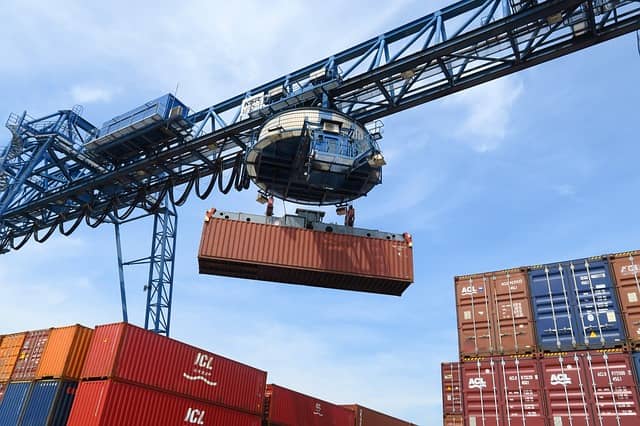
The Seller’s Responsibilities
FOB Incoterms require a seller to prepare the goods based on your order and package them suitably for freight via water. The latter is particularly important because there are specific packing recommendations for LCL and FCL shipments.
The seller is further required to:
- Load the goods onto a local carrier
- Deliver the goods to the agreed port of origin
- Clear the goods for export and pay export clearance fees
- Arrange and pay for the loading of the goods onto the shipping vessel
Responsibility for the goods transfers to the buyer once the goods are on board the vessel.
Once these tasks are complete, the seller can request shipping documents from the export carrier and notify the buyer that the delivery has been fulfilled.
The Buyer’s Responsibilities
A buyer shipping goods under FOB Incoterms is mandated to:
- Choose an export shipping carrier or freight forwarder and agree on shipping terms.
- Arrange for transit insurance for their goods (just like in FCA, this is optional but recommended).
- Pay for freight costs.
- Track the shipment.
- Clear the goods through customs once they arrive at the port of import.
- Pay customs clearance fees and import duties.
- Arrange and pay for the unloading of the goods and any other terminal handling charges that arise.
- Organize local transport and pay for last-mile delivery.
Advantages of FOB Shipping Terms

Advantages to the buyer:
- The seller handles all export clearances and loading processes.
- The seller is responsible for loading the goods. Subsequently, unlike in FCA, the risk of goods getting lost or damaged between when they are delivered and when they are loaded lies with the seller.
- The buyer handles a larger part of the logistics and can pick a carrier of their choice and negotiate favorable terms.
Advantages to the seller:
- A seller’s responsibilities under FOB are minimal and the costs can be passed onto the buyer through pricing.
- Overseeing the loading of the goods makes it easier to request a Bill of Lading or On-Board notification.
- A seller transacting under FOB seldom has to deal with any clearance procedures in the port of destination.
Disadvantages of FOB Shipping Terms
Disadvantages to the buyer:
- FOB Incoterms can only be used for sea/ocean freight. You would have to negotiate different shipping terms if your transport preferences change.
- Finding, negotiating, and coordinating with an export carrier and insurance provider can be quite tasking.
- While the seller bears the risk until the goods are on board, they will likely pass on to you most of the logistical costs that they incur.
Disadvantages to the seller:
- Sellers assume slightly more risk under FOB compared to FCA or EXW Incoterms.
Comparing the Provisions of FCA vs FOB Incoterms
In both FCA and FOB Incoterms, the seller bears the responsibility for local delivery to a carrier or a nominated destination. They are also tasked with handling export clearances and terminal handling charges.
On the other hand, the buyer is responsible for export transport as well as all import clearance procedures and costs.
However, there are a few significant differences between FCA and FOB that are worth taking note of. They include:
Types of Containerized Cargo
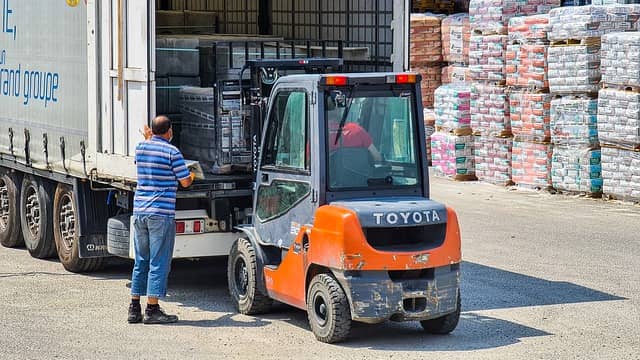
When choosing between FCA or FOB it is important to consider whether you will be shipping a Full Container Load(FCL) or as a Less-Than-Container Load.
FCA is ideal for both FCL and LCL because the seller only needs to deliver the cargo to the carrier and handle export clearance. As such, even if they drop off the cargo at a container yard or container freight station, they can still fulfill their mandate.
In comparison, FOB may only be best for full container loads (FCL). This is because a full container is delivered ready to clear for export and load; unlike a shared container where goods have to be consolidated at a CFS before they can be loaded aboard the ship.
Different Degrees of Risk
In FCA risk over the goods transfers to the buyer once the seller delivers the goods to the named place or a nominated carrier. Contrastingly, in FOB, the buyer only assumes risk over the goods once they have been cleared for export and loaded on the vessel.
Based on this, it is safe to say that FOB offers a marginally lower degree of risk to buyers compared to FCA. It benefits the buyer because they:
- Do not have to pay any warehouse or demurrage charges if the shipping is delayed. The seller has to coordinate a timely delivery with the carrier or handle such costs caused by delays.
- Do not have to bear the risk of the goods getting damaged or lost during the loading processes or even while the goods are in holding before they are loaded.
Permitted Modes of Transport
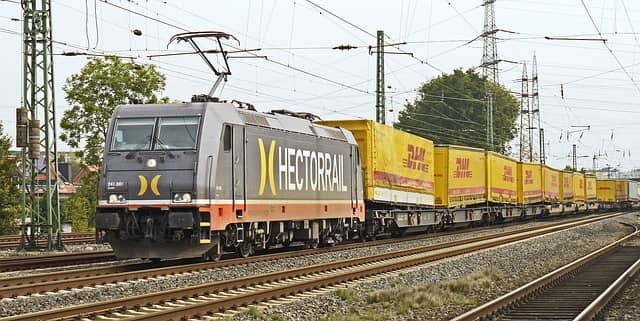
Free Carrier Incoterms apply to the transportation of goods via sea, ocean, rail, road, or air. They would, therefore, be ideal if you foresee circumstances where you may need to use different modes of transport.
However, if you will be buying in bulk or simply prefer ocean/sea freight, then Free On Board Incoterms would be more suitable.
FAQs on FCA and FOB Incoterms
How do FCA and FOB Compare to FAS?
FAS stands for ‘Free Alongside Ship’. It requires a seller to prepare, pack, and transport goods to an agreed location. The responsibility of the goods shifts to the buyer once the seller clears the goods for export and delivers them at the shipping terminal or ‘alongside ship’.
The only difference between FAS and FCA is that the cargo is always delivered to a port while in FCA it can be to any shipping terminal or local destination.
Meanwhile, the difference between FOB and FAS is that Free Alongside Ship does not require a seller to pay for or handle the loading of the goods.
In a nutshell, FAS could be a fair compromise between FCA and FOB Incoterms if the buyer does not mind taking responsibility for the loading of the goods.
What Does FCA Shipping Point Mean?
In shipping documents, FCA is usually expressed in two ways depending on the nominated destination.
If the nominated destination is a shipping terminal, then you may notice a reference such as ‘FCA Shipping Point (Shanghai).’ This would mean that the seller is to deliver the goods to a port in Shanghai.
Alternatively, if the specification is simply ‘FCA Shanghai’ it would likely not be a port. There would need to be a specific address to go along with the expression to define exactly where in Shanghai the delivery should take place.
Is FCA Better Than FOB?
Only factors like your shipping needs, budget, logistical preferences, or seller policy can truly prove some Incoterms are better for you than others.
However, in a general sense, FCA would be ideal if you:
- Trust your carrier to handle and load the goods safely once the seller delivers them.
- Are transporting goods that may require consolidation and this cannot be directly loaded onto the shipping vessel.
- Would prefer to be able to use more than one means of transport.
FOB would, nonetheless, be more suitable if you:
- Are shipping a full container that your seller can clear for loading.
- Prefer the seller to take on the risk of shipping delays or damages.
- Plan to use inland waterway, sea, or ocean freight at all times.
To Sum It Up
The beauty of shipping Incoterms is that they clearly outline all the terms and conditions for buyers and sellers. They leave very little room for misconception and so once you read through them, as you have in this guide, it is much easier to make the right pick.
Still, at NicheSources, we understand that logistics can look easy on paper but be quite challenging to implement when you are halfway across the world from your seller. As such, we provide comprehensive product sourcing services and global shipping support.
Are you ready to upgrade to more efficient sourcing and shipping solutions? Simply send a brief detailing your requirements, request a free quote, and leave the rest to us.
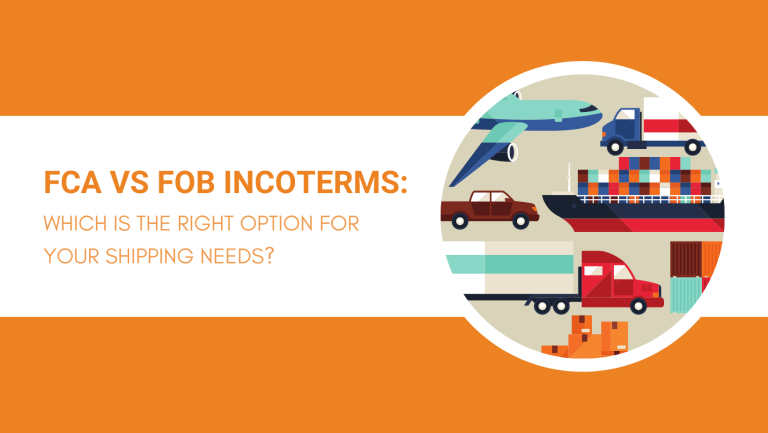

You are wrong on following points
1. You have stated that under FCA, terminal handling charges are to be paid by seller. These are to be paid by buyer.
2. You are repeatedly saying that FOB can be used for FCL. FOB cannot be used for containers. I would like an correspond with you. Please reply